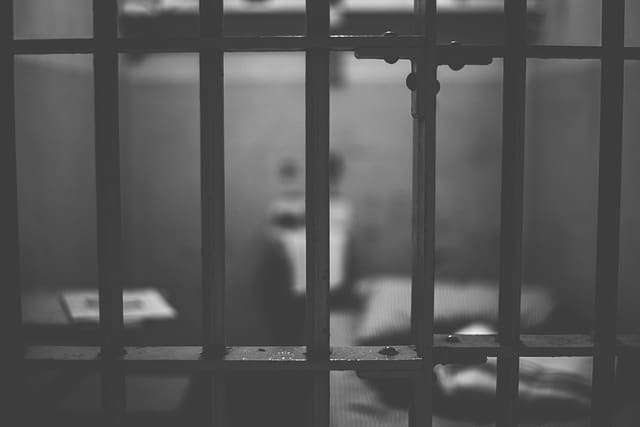Being charged with a crime in Sydney can be a frightening and overwhelming experience. As an accused person, you have certain rights that must be protected as your case proceeds through the criminal justice system. An experienced criminal defence lawyer advising and representing you is crucial for ensuring you receive due process and fair treatment.
This article provides an overview of what to expect when facing criminal charges in Sydney and how working with a defence lawyer can help safeguard your rights and interests at every stage.
The Importance of Legal Representation:
The first step after being charged is retaining a qualified Sydney criminal defence lawyer to act on your behalf. The lawyer’s in-depth criminal law and procedure knowledge will prove invaluable for mounting an effective defence and guiding you through the complex justice system. Your lawyer will review the evidence against you, identify any police misconduct or rights violations during your arrest, and develop a tailored defence strategy to achieve the best possible outcome for your case.
A defence lawyer serves as your advocate, advisor and representative. They will appear with you in court, speak on your behalf, cross-examine witnesses, negotiate with the prosecution, and object to improper rulings or proceedings. This robust representation can frequently lead to reduced charges or penalties, diversion programs rather than jail time, and, in some cases, dismissal of orders before a full trial. Without expert legal guidance, you are highly vulnerable to the power and resources deployed by police and the prosecution.
Police Interviews & Your Right to Silence:
If you are called in for a police interview after being charged, having a defence lawyer present is vital protection against self-incrimination. The lawyer can stop the questioning if the police become inappropriate, clarify ambiguities in the questions, and ensure you don’t make any statements that could later harm your case.
Crucially, they will advise you on whether to answer questions, exercise your right to silence or provide written information. With serious criminal charges, remaining silent rather than speaking without legal guidance is almost always the best option.
Bail and Release from Custody:
After being charged, the police can hold you in custody or release you on bail while awaiting your court dates. Defence lawyers will act swiftly following any denial of bail to file a formal bail application before the court. They know what specific conditions and arguments may persuade the judge to grant bail in otherwise tricky cases. If released on bail, your lawyer will explain the bail conditions you must adhere to to remain free pending the resolution of your criminal case. Violating bail conditions can result in jailing again while waiting for court, so compliance is essential.
Plea Decisions and Negotiations:
Before the trial, your lawyer will discuss the option of pleading guilty or not guilty. For guilty pleas, they can negotiate with the prosecution to reduce charges and penalties. If you claim not guilty, they will begin preparing evidence and arguments to establish your innocence at trial. Your lawyer’s advice about available defences and likely trial outcomes will inform whether to plead guilty or proceed to trial. Their negotiations with the prosecution can also secure plea agreements or deals that minimise charges and penalties.
Trial Proceedings and Presenting a Defence:
If your case goes to trial, your criminal defence lawyer will fight for you every step of the way. They will argue to exclude improperly obtained evidence, thoroughly cross-examine the prosecution witnesses, raise objections to improper examination questions or procedures, and call any favourable witnesses you may have.
The lawyer will also advocate for you at sentencing if a guilty verdict is reached, marshalling information and arguments to help achieve the lightest sentence possible. Without legal representation, the odds are stacked heavily against an accused person at trial.
Appeals and Reviews:
If you are ultimately convicted and sentenced, your defence lawyer can assist with filing appeals or asking for reviews of the conviction and sentence. Based on how the trial and hearing unfolded and the final judgement, they will analyse options for appeals to higher courts or requests for reviews by an independent panel.
Attractions and reviews allow unjust convictions to be overturned or for unfair sentences to be reduced eventually. Your lawyer’s involvement dramatically enhances the prospects of success.
Why Defence Lawyers Are So Important:
At every significant stage and proceeding, a quality Sydney criminal defence lawyer is invaluable for protecting your legal rights, advocating your position, and guiding you safely through the criminal justice process. Without this expert legal representation, the risk of police misconduct violating your rights escalates drastically, pleas and negotiations will prove extremely difficult, and the prospects of conviction and harsh penalties increase substantially.
Your lawyer helps ensure that your case proceeds pretty and that the strength of the evidence, rather than bias or police overreach, determines the outcome. This upholds the critical legal principle of being innocent until proven guilty.
How to Choose the Right Criminal Defence Lawyer:
Retaining an experienced, passionate and highly competent criminal defence lawyer is essential for anyone facing criminal charges in Sydney. But with so many legal practices and individual lawyers, how do you select the right one for your situation? While costs are necessary, looking at a lawyer’s track record in similar cases, their reputation among peers and judges, and your rapport and level of trust with them during consultations is vital. Use the following tips to help find the perfect lawyer to protect your interests and rights.
Specialisation and Experience Handling Your Type of Case:
Not all criminal defence lawyers have the same experience and expertise with certain criminal cases. Review the lawyer’s background and case history to confirm extensive firsthand experience specifically representing clients facing charges like yours.
You want a lawyer intimately familiar with the details and intricacies of your type of case. Check that they regularly handle these cases and appear before the relevant courts. Specialist knowledge can make a significant difference.
Strong Negotiation Skills and Trial Advocacy Experience:
Look at the lawyer’s success in achieving charge reductions and lenient sentences through plea deals and negotiations with prosecutors. Also, examine their track record, trialling cases and mounting rigorous defences when pleas aren’t appropriate.
Optimal outcomes often rely on a lawyer’s challenging negotiating skills and courtroom litigation experience. Ask about their use of expert witnesses, cross-examination tactics and other trial advocacy techniques.
Knowledge of Police Investigative Practices and Methods:
A strong criminal defence lawyer will have extensive insight into typical police investigative approaches, methodologies and behaviours. They can identify where police may have overstepped bounds, taken advantage of vulnerabilities or otherwise misbehaved when building a case against you.
This allows robust challenges to evidentiary admissibility and police conduct at trial or through pre-trial motions. Remember to consider this knowledge.
Resources and Caseload Capacity:
Ensure the lawyer has sufficient time and resources to dedicate to your case. A top lawyer with too many points can still provide inadequate representation if spread too thin. Look for those able to devote the necessary time and with associations with skilled barristers, forensic experts and investigators available. Adequate resources and reasonable caseloads are a must.
Strong Rapport, Respect and Communication:
Developing rapport, earning respect, and maintaining clear communication with clients are vital for any defence lawyer. During consultations, observe how well the lawyer listens, answers your questions, outlines options, and works to earn your trust and confidence. An aligned, trusting relationship between lawyer and client lays the foundation for mounting an effective defence together.
Cost Structure and Billing Approach:
Legal costs must be reasonable and transparent. Look for a lawyer willing to provide flat fees, monthly billing and payment plans rather than demanding large retainers upfront. Their billing structure should align with your financial means. Costs should be discussed openly. Be sure you understand exactly what their fees cover so there are no unpleasant surprises down the road.
Choosing the right criminal defence lawyer demands research and care. However, taking the time to do so correctly can make an enormous difference in the outcome of your case. Partner with a lawyer who inspires your confidence and who you trust to protect your legal rights every step of the way. This provides the most excellent reassurance during a tough time.
Conclusion:
Facing criminal prosecution in Sydney can be an extremely challenging predicament. However, exercising your right to skilled legal representation and selecting a Sydney criminal defence lawyer with the expertise and commitment to protect your interests will make navigating the criminal justice system far less daunting. Your lawyer will guide you through police investigations, pre-trial preparations, plea considerations, and trial proceedings.
They will advocate for you before judges and prosecutors while aiming to secure the most favourable outcomes possible. With an experienced defence lawyer, you gain a knowledgeable ally against the significant resources and powers deployed against you. Don’t leave your rights and future in the hands of the system alone. Partner with a trusted advisor and advocate by immediately retaining a quality Sydney criminal defence lawyer. This will provide the reassurance, protection and peace of mind needed during your crisis.









